I was invited to screen the movie and received a gift as part of this partnership. All opinions are my own.
Going into my first pregnancy, I was aware of Postpartum Depression. My OB-GYN never mentioned it, and I’d never seen it portrayed on TV or in a movie. And I was the first of my friends to have a baby, so I definitely didn’t hear about it from them. The only reason I knew it existed was because I was a psychology major in college, and we had briefly learned of it’s existence in one class.
Having a lifelong history of both anxiety and depression, I worried that I would wind up with Postpartum Depression, or PPD. A history of mental health issues is just one of the many factors that contribute to PPD and it’s cousin, Postpartum Anxiety. Out of the deep-rooted fear that I already had about my ability to be a mother, I never sought help when I did suffer from PPD, but luckily in my case it wasn’t life-threatening and I made it to the other side.
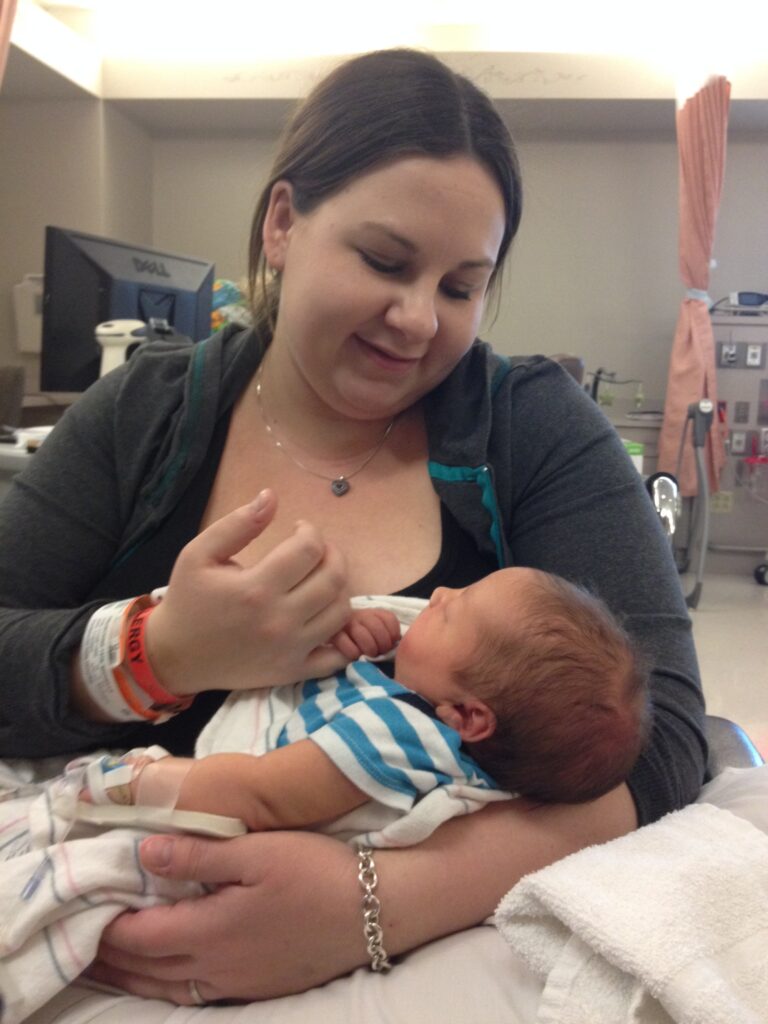
When I was pregnant with Zac, I learned more about Postpartum Anxiety, which I hadn’t even heard of until then. Unfortunately I learned about it through experience, but this time my doctor did mention it- somewhere around the time I whipped out a 20 question long checklist to go over with him- all new issues since the last appointment one week prior. He told me that I likely had Prenatal Anxiety, which is basically PPA while you’re still pregnant, and that was the end of the conversation.
Postpartum anxiety and postpartum depression are so, SO common- and not just with biological mothers. Partners and even adoptive parents can suffer from them too- it’s not strictly a biological condition but has to do with so many other things, like a lack of sleep, a lack of support, and a drastic change- all of which are things that any new parent or caretaker faces.
Despite being common issues, PPD and PPA are very rarely spoken about publicly. It’s gotten a little better in the years since I had my kids, but we have a very, very long way to go. That’s why I’m so thrilled that the new movie A Mouthful of Air is on digital + on demand now, to help educate so many more people.
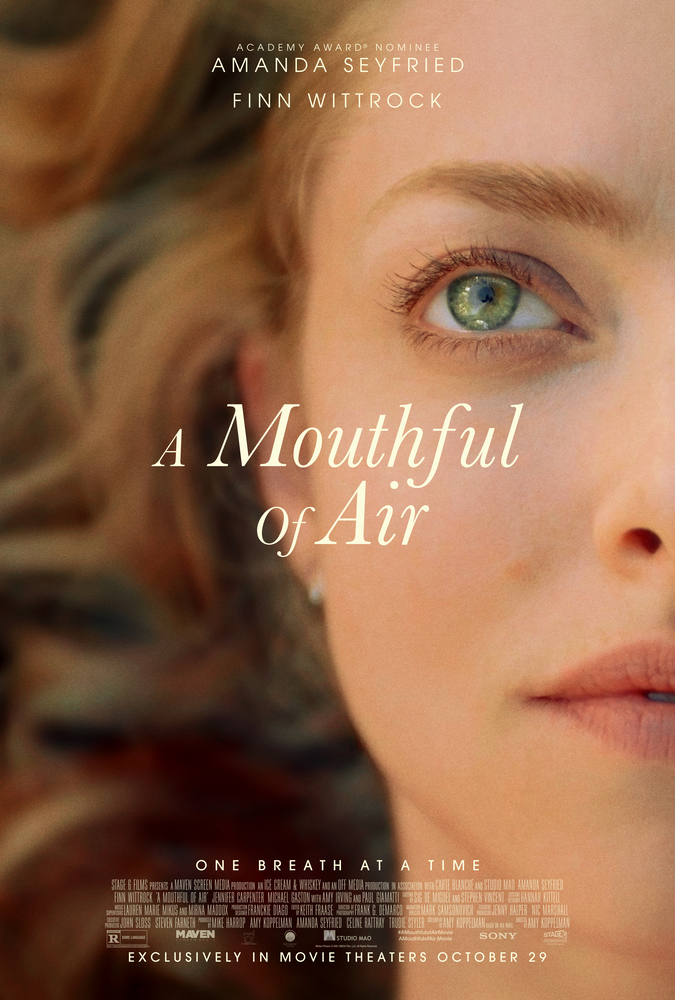
A few months back I shared my review of the A Mouthful of Air movie, and I have to say that in the months since it hasn’t left my mind. It’s such a haunting and important film, and while the case of PPD shown in the movie is extreme, it is real. Many people face these feelings- alone and scared to share them. Removing some of the stigma behind these issues can hopefully allow those who are suffering to seek help when they need it, and having tools like A Mouthful of Air is a great way to help reduce that stigma.
I recently had the opportunity to chat with the Director & Writer {who also wrote the book it’s based on}, Amy Koppelman, as well as star Amanda Seyfried and respected pediatrician and childcare expert Dr. Harvey Karp. Below is a part of our conversation, and it’s a must-read for everyone.
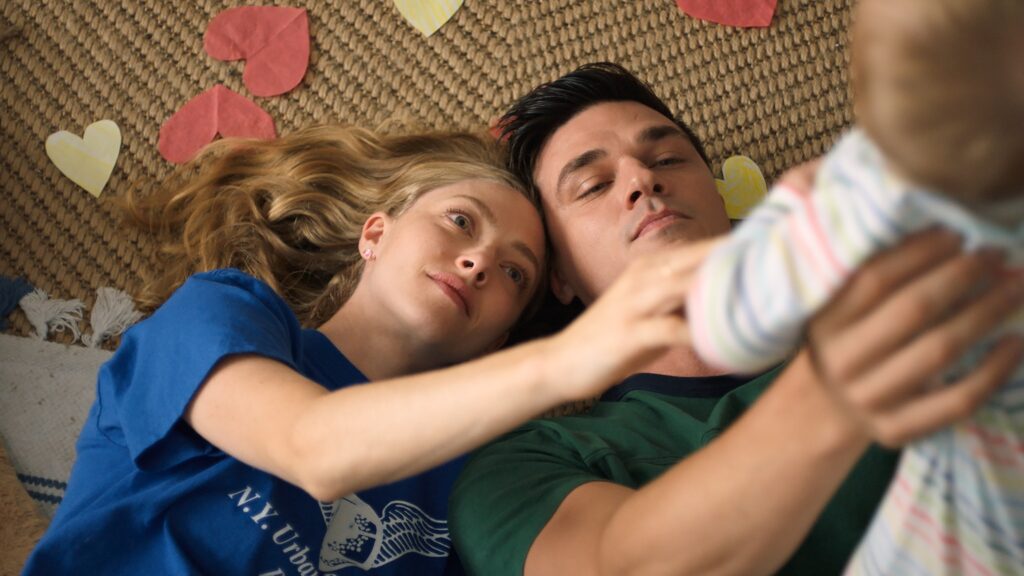
What prompted you to make this movie? What do you hope others get out of it?
Director/Writer Amy Koppelman: To open a line of communication and to help women know that they aren’t alone. We use this word “postpartum depression”, but really it’s about how scary it is to be a mom and all the different pressures that you feel. We’re told that you’re supposed to get this magical maternal instinct that’s supposed to make every single thing feel easy to do, and then you have this baby and sometimes it’s hard to figure out how to change a diaper and it doesn’t mean that you’re a failure but you start telling yourself you are.
Amanda, as a mother yourself, how was it playing this role?
Amanda Seyfried: Every time you take on a role like this, it can take you back to the darker times in your life. But it was very cathartic for me. I didn’t feel that it was necessary for me to have suffered from actual postpartum depression to understand and be able to play somebody who does because the whole thing is foggier. Julie is struggling greatly from mental illness postpartum, and even if you can understand a fraction of that I think it’s important to try to embody somebody like that because it is true that we all share something so immense as mothers, as people who go through it. I just felt like it was important.
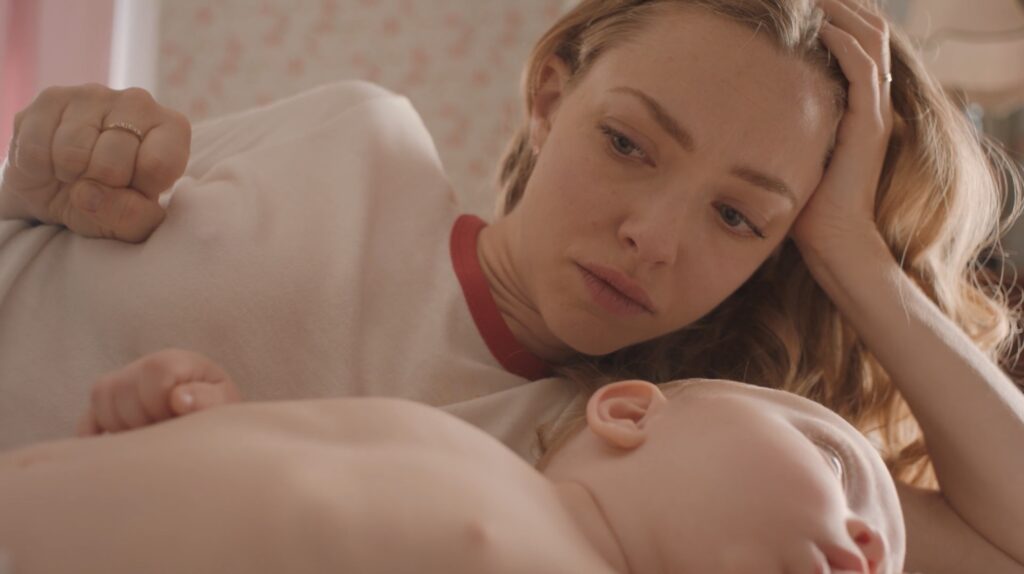
What is the science behind it all?
Dr. Karp: When we think of it, the science and the sociology behind it are inseparable because the basic underlying issue or problem that we have is that we took a left turn aways back when we decided to leave our extended family. There’s never been a culture in the world that raises families where they use a nuclear family, where the normal family are two parents and a child- or these days, half of new parents aren’t even married or they’re single parents. It’s completely abnormal from a human development point of view. When you have a baby, you’re supposed to have other women surrounding you asking what they can do for you, or massaging your feet, or asking what they can cook for you and taking care of you like you’re the baby because you’re going to be baby-ing the baby.
What can we look for in women?
Dr. Karp: The symptoms are very broad. The idea of depression, which we think of as sadness and crying and feeling blue, absolutely can be a sign- and it can happen well before you have the baby, and it can happen a year later. Oftentimes, the first symptoms are not even sadness, it’s fatigue, it’s feeling like “what was I thinking?”. Oftentimes, it’s not even about your relationship with the baby. It’s “I feel like all my other friends know what they’re doing and I don’t”. Or even thoughts that come in. All of these things that kind of ping-pong, it’s not one or the other. When you’re sleep-deprived, as you typically are when you have a new baby, that plows the field and nurtures these weeds of self-doubt and feelings of incompetence.
It’s more important to let people know to be open to this being a curveball, and be open to letting people help you. This is the time of your life when your arms should be open to receive. You’ll pay them back later. This is not your time to pay, this is your time to receive.
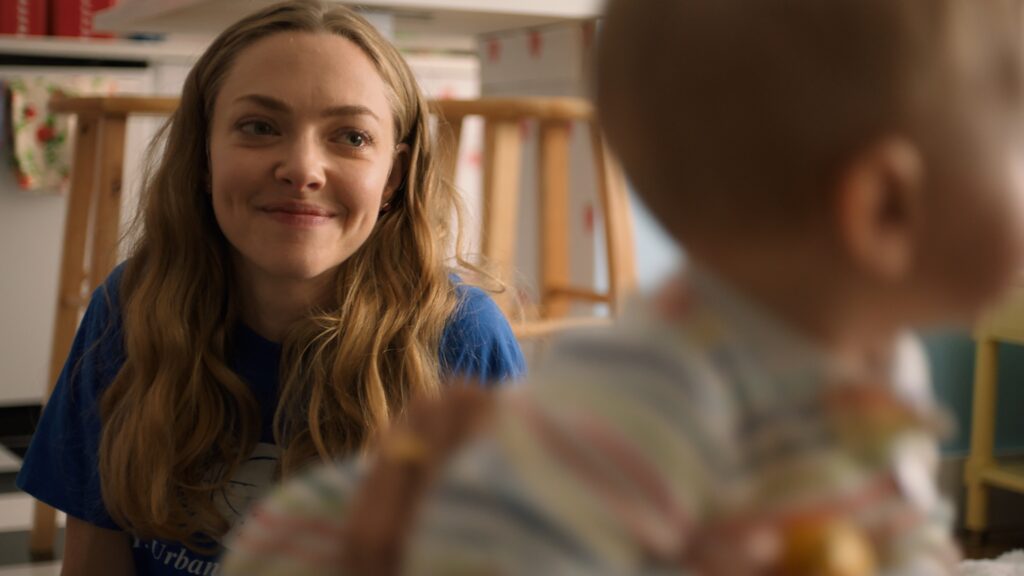
On what prevents mothers from asking for help:
Amy Koppelman: There’s a disconnect between how people are feeling and then talking about it, because if you say that you’re scared when you first become a mom- my biggest fear was that they would take my son away from me if I said how scared I was and how ill-equipped I felt. You do get scared of what the ramifications of telling how you’re really feeling are, whether it’s that the other moms in the playgroup are going to think you’re weird or you’re a bad mom. One of the reasons we cared so much about making the movie was so that we could give people permission to talk about these feelings through a fictional character because that’s often how we learn to empathize with people who are different than us, or how we can explain our own feelings to our partner.
You can watch A Mouthful of Air right now- catch it wherever you rent or buy digital movies and be sure to pick up the book it’s based on as well- {affiliate link} grab it here!
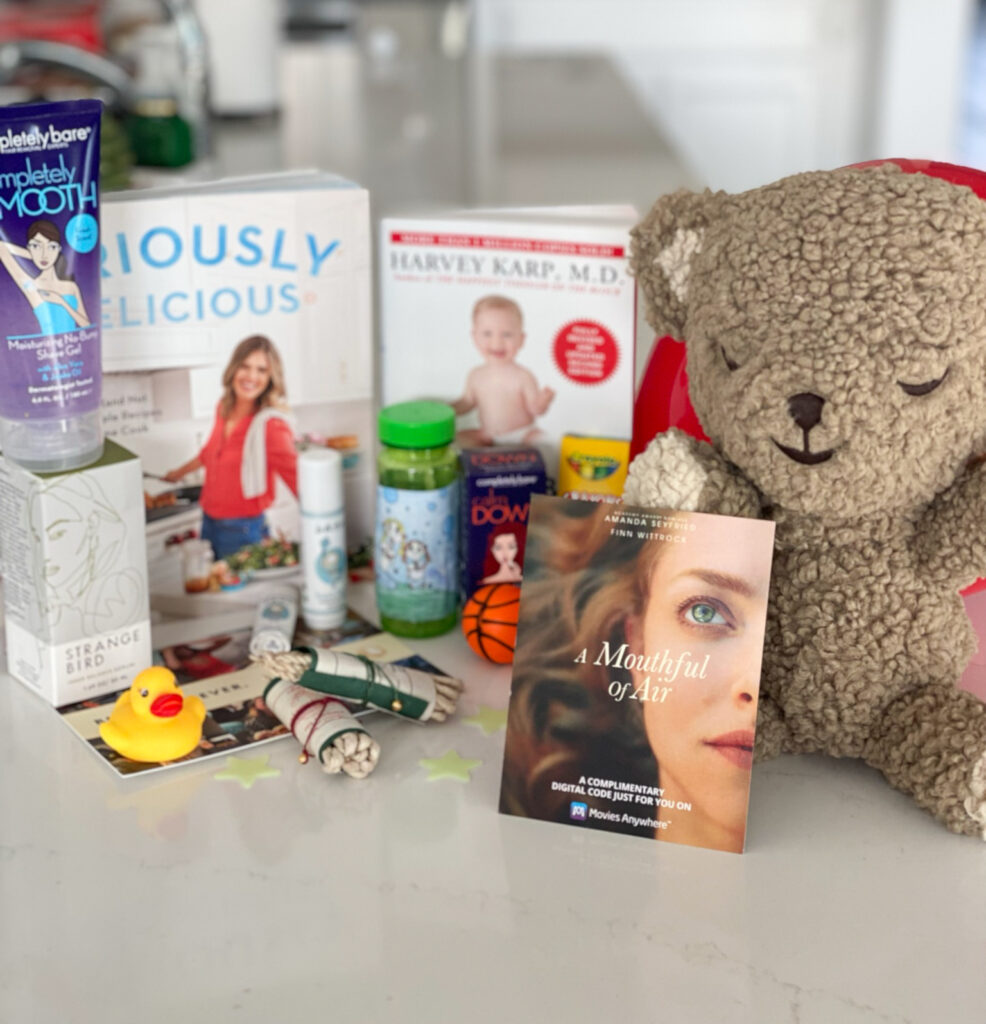
Also, thank you to the brands who sent a great self-care package- click the brands below to learn more about what they offer and how their products can fit into your self-care plan this year:
- Dr. Karp and the Happiest Baby & SNOO team
- Siri Daly {Siriously Delicious} | Cookbook here! {affiliate link}
- Strange Bird Beauty
- BoomBox
- Bare Essential Organics
- completely bare
- Emily Fletcher with Ziva Meditation

Leave a Reply